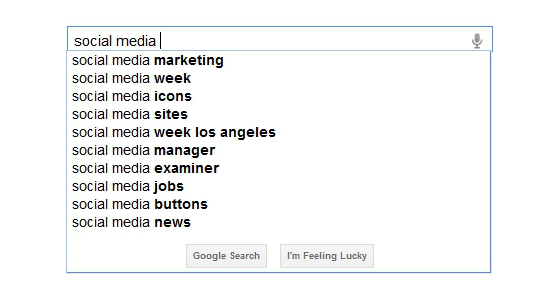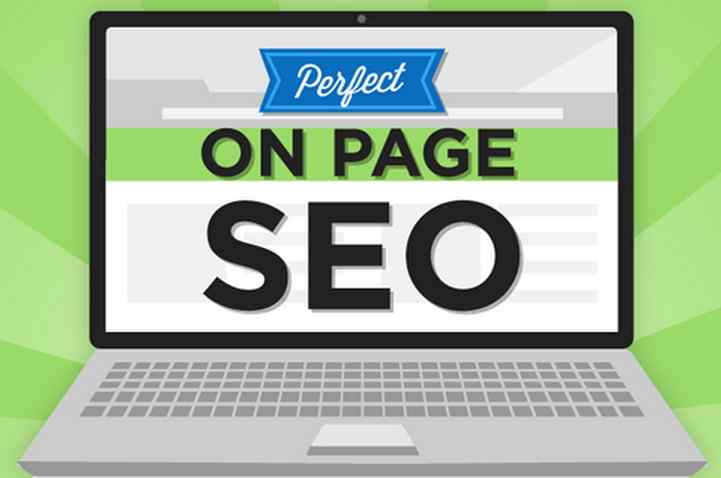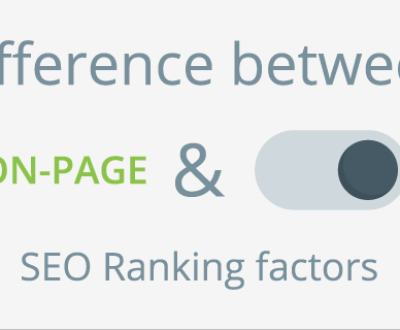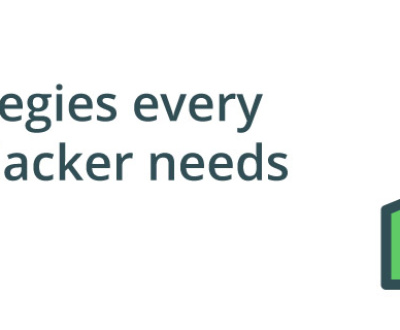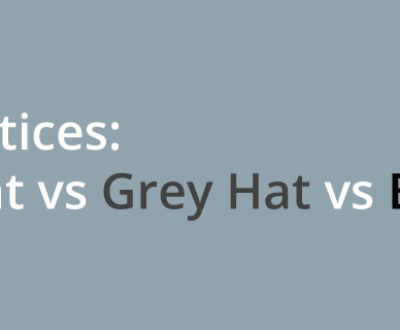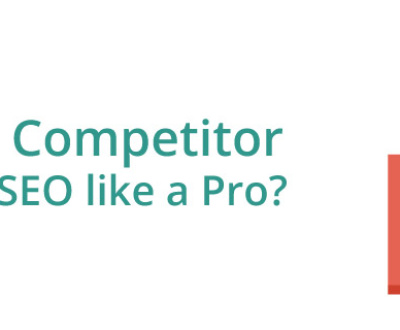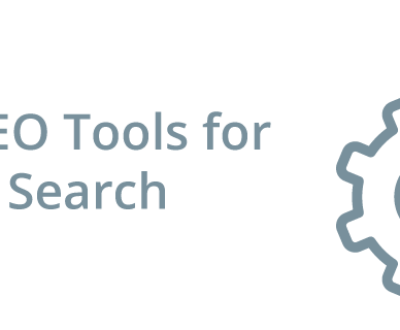There are rumored to be more than 200+ ranking factors which Google uses to rate each website. Aren’t you curious to know what they are? The web has been filled numerous lists which say they are closest to the truth. But most of them are just educated guesses/assumptions based on a regular look at analytics and Search ranking. If you would like to read one of these lists, go to Brian Dean’s Article here. But we present to you the 25 most important ranking factors that you must know before you go ahead with your SEO strategy. Let’s have a detailed look at them:
When it comes to KEYWORDS:
Keywords are the most important pillar when it comes to SEO, there is no doubt about it. After all, search engines depend on keywords to figure out what your website is about and rank it for all those specific keywords.
#1: Keyword in the Title Tag: Search engines often look at the title tag to decide what the page is about. When you use a keyword in it, you make it easier for the search engine to rank it for that particular keyword. Keeping your keywords right in the beginning of your Title tag is a strong signal for a search engine to ignore.
#2: Keyword in Meta description and H1 tag: When it comes to making your website more relevant to search engines, you need to tell the search engine that this is what my website is about. For that to happen, your meta descriptions and H1 tags need to have your primary keyword included in it.
#3: Quantity of Keywords: Don’t get this wrong, this doesn’t mean that you fill your web page with your keywords. The search engine will not waste time to penalize your site. Be natural in the way you write your content and be careful that your keywords appear organically in your content. Then, you don’t have to worry about penalties.
#4: Exact Keywords: The more you do keyword research and implement it in your content, the better. If your content matches the keywords in the exact order that the user searches for them, it will automatically appear on top in the SERPs. For example, if your content is optimized for “how to format my smartphone” compared to “smartphone formatting tips” then you will get all the traffic for the former keyword.
#5: Heard of LSI?: No. Okay, so it stands for Latent Semantic Indexing Keywords in Content. LSI keywords are semantically connected to your primary keyword. It helps Google understand the exact meaning of a word. After all, you don’t want Google to be confused what your keyword means and rank it under a different domain. Check out this LSI keyword generator.
When it comes to CONTENT:
‘Content will always remain king’ when it comes to Search Engine Optimization. The higher the quality of content, the greater assurance you can have for a better SERP position. Google has been looking at rewarding sites with good content over the years.
#1: The length of the posts: We know that an expert always has more information. Similarly, Google looks at your website and measures the length of your posts to assess your authority in that particular domain. Now, it is accepted in the SEO industry that websites need to have longer posts, 2500 words and more to establish their credibility as an expert in that domain.
#2: Duplicate content: The biggest mistake you can commit while doing SEO, is stealing someone’s content. Google has indexed nearly every web page on the WWW, so you have no place to hide. It scans your content and immediately knows that this content has been duplicated. You will have to face serious consequences that damage the credibility of your website.
#3: Fresh Content: Google wants its users to have the most updated information. So when it comes to ranking websites, it looks at websites that are continuously producing fresh content. You produce original/valuable content on a regular basis and expect to be rewarded for a sure with a boost in your rankings.
#4: Multimedia Content: When it comes to users loving your website, they need infographics, videos and images to stay on your page for a longer time and enjoy your content. So the more multimedia you have on your page, the more it signals to search engines that your content is original and of high quality. Also remember to give proper descriptions for multimedia through ALT text.
#5: Supplementary Content: Google wants you to provide a great user experience for your users and its measures ways in which you are doing it. When you provide tools and resources for your users like scaling guides, calculators for custom measurements and so on; it directly signals to Google that you care about your customers and prove yourself to be a site of high quality.
When it comes to LINKING:
Backlinks are the best way for Google to assess the trust that your website commands and is one of the strongest factors to decide where you rank on the SERPs. So there is no ignoring linking as the most important factor of SEO.
#1: Outbound links: While we all know the value of authoritative backlinks, what many site owners ignore is the power of outbound links. While they don’t give you a direct benefit, it signals to the Google search engine that you want your users to know more and have the user’s needs in mind. When used in moderation, this has a significant impact on your rankings.
#2: Backlinks from your same domain: We give importance to backlinks from authoritative websites, but do you know that when you are linked to by websites in your own domain, it adds a huge amount of credibility to your website and improves your search ranking. Also, backlinks from your competitors send a highly positive signal to the Google search engine.
#3: Internal Linking: One of the most important factors is, how well your web pages are interlinked. It is an excellent practice to go back to your old posts and link your newer posts. And always link older posts of yours in your newer posts. This distributes the value equally to all the web pages and gives them a steady stream of traffic also.
#4: No Broken Links, Please: This is a strict No-No. How do you spoil all the good work you have done on your website? Having broken links on your website shows Google that you are not taking care of your website and that is a big reason for you to be penalized. So keep your site updated at all times and check for broken pages to restore them.
#5: Stay away from Webspam: Google doesn’t any site that indulges in web spam. You need to maintain diversity in the sources from which you get backlinks. Google measures the proportion of links from each source and decides what value to give it. So, even if you think you have tricked the system, Google can downgrade your links and penalize you severely.
When it comes to ON-SITE factors:
Google places a huge emphasis on checking if your website is following all the rules it has set. After all, it wants to ensure that users have a smooth experience once they have entered your website, and can only be disappointed if they don’t like the content you provide.
#1: Overall Website Architecture: When Google displays your website in the SERP, it puts a certain trust in the quality of your website. The first step is to ensure that your website has all the tags are in place, proper layout in place and finally has a clear sitemap.
#2: Domain Signals: Your domain speaks a lot about your website. If it has your primary keyword in it, that is a major boost. But, the age of your domain signals can show trust more than anything. If your domain has a country extension, it is sure to get a higher ranking when searched in that region. And if your domain has been penalized before, you will always be scrutinized.
#3: Page Loading Speed: Page loading speed is a definite signal to Google, that influences your ranking adversely. Your page loading speed directly affects the user experience and directly influences the percentage of users who will end up using your website. So there is no excuse to not have your site load faster and also have a mobile optimized site for mobile users.
#4: Safety on your website: Google wants its users to only visit sites that are secure, so it gives a higher ranking to websites that have their security features in place. So SSL certificates and HTTPS come into the picture here. Not only that, having a Privacy Page and Terms of Service page signals that you are a trustworthy website that cares about their user’s security.
#5: Using the recommended tools: Google has time and again recommended website owners to use Google Analytics and Webmaster tools as there are many benefits attached to it, including a higher search ranking. Not only can you use the data presented by these tools to improve the performance of your website, but it also gives the opportunity to Google to assess your performance and rank you accordingly.
When it comes to USER INTERACTION:
Google analyses how users are using your website and sees the metrics to know if they are satisfied. It tries to understand if your content is of high quality and if you are engaging with users in a positive manner thereby ensuring a great user experience.
#1: Getting Bookmarked: When your site gets bookmarked, it signals to Google that your content is appreciated and is considered valuable by users. So the greater number of bookmarks you achieve, the higher in the SERP you can expect to appear; it is that simple. Even if you are pinned on Pinterest, you send a positive signal to Google.
#2: Credibility on Social Media: When highly popular pages on social media sites like Facebook, Twitter, Google+ share and like your posts, it is considered to increase your credibility as a brand. This will directly increase your search visibility in the long run.
#3 User Engagement: Quantity is not important in SEO, that the one thing that every webmaster needs to know. Be it keywords, links, content or followers. It is the quality that matters. When it comes to interactions on social media, having 5000 likes won’t help, you need to have proportional user engagement to show that all your followers are having a great experience.
#4 Are you a brand?: Over a period of time, people become familiar with your website. They may not use the search engine to find you. But if you have enough and more content on your website that people search your “brand name plus keyword”, it is a huge boost to your website. Google then understands that you have now become an established brand and will take you up in the rankings immediately as you have established your website as a domain leader.
#5: Online User Reviews: If Google hears good things about you on the WWW, it is definitely going to boost your website in the rankings. If you have positive reviews on forums posted by users, it tells a lot about the quality of your site and the user experience you product other that the product/service you provide. So the more the positive buzz, the more Google values your site.
Conclusion:
These 25 ranking factors play a major role in deciding how well your website is ranked by Google. Now with the entry of RankBrain, there has been a lot of uncertainty around, but you don’t need to panic. All you have to see is that you don’t indulge in web spamming and keyword stuffing. The main focus areas you need to work on is keywords, original content, links and you can stay tension-free.
Tell us if we missed any ranking factors that you would like to see here. We would be glad to update this list.

